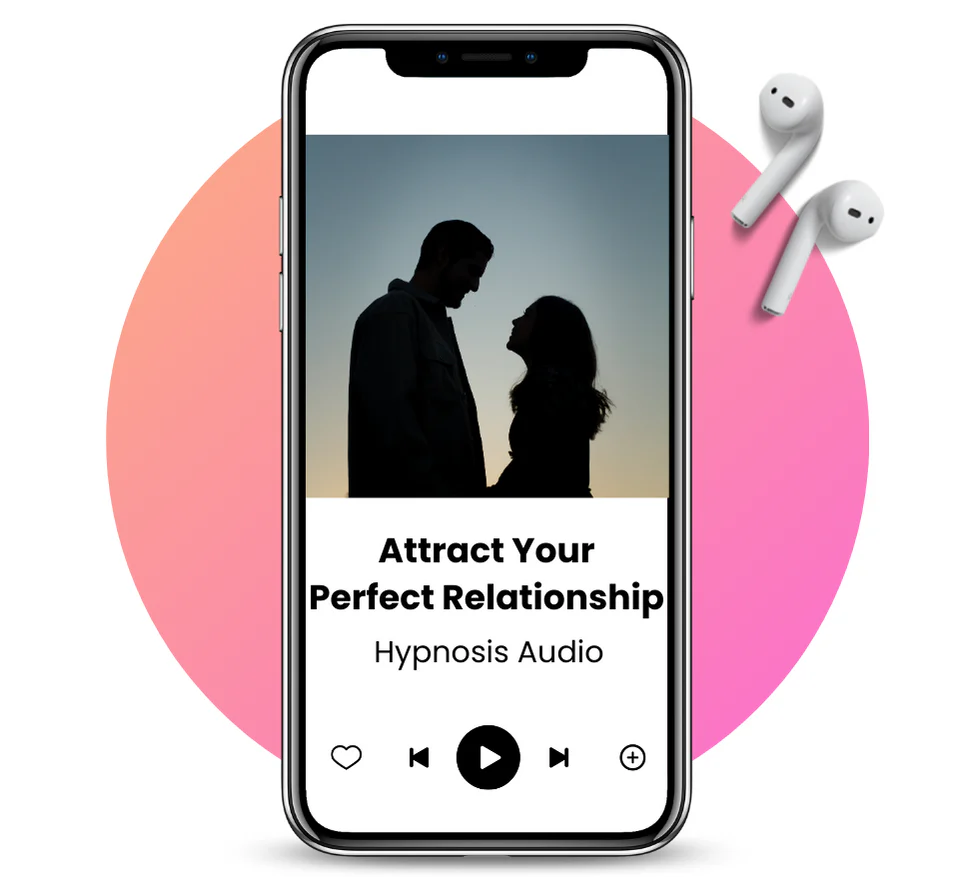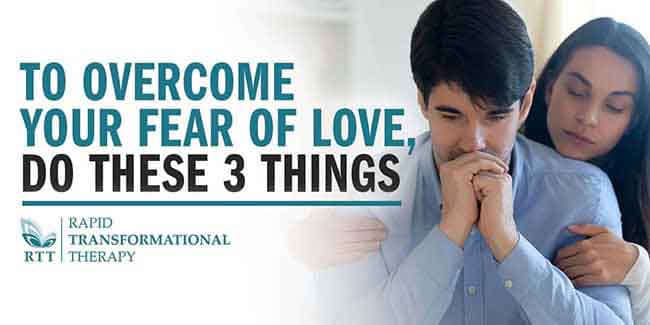Tricking you into thinking that you are safer, avoiding romantic relationships, fear of love (also known as philophobia) might deprive you of enjoying a fulfilling love life. Most of us spend years of our lives searching for life partners and seeking love.
However, for some people, just the notion of developing feelings or being tied to another person is scary and unsettling. This fear might hinder some from experiencing one of life’s greatest gifts and human’s basic needs; human connection and intimacy.
The good news is that you can overcome this stumbling block with the right tools and learn how to welcome love into your life.
In this article, you will learn more about:
- What philophobia is
- How you know if you are scared of love
- What causes a fear of love
- How to overcome the fear of love
- Addressing the root cause of your fear
Let’s get started by finding out exactly what Philophobia is.
What Is Philophobia?
In psychology, the fear of love is referred to as philophobia.
The word philophobia has Greek origins, and it is made up of two parts, “Philo,” which means love, and “phobia,” which means fear.
You might be familiar with the word phobia as it is commonly used to describe an extreme, unjustifiable fear.
People who have philophobia are scared of getting involved in romantic relationships and emotionally connecting to a significant other.
Philophobia also shares some similarities with other phobias, such as pistanthrophobia. However, the critical difference between them is that pistanthrophobia is not exclusive to just romantic relationships. It also extends to a fear of making emotional connections with people in general.
How Do You Know If You Are Scared Of Love?

At some point in your dating life, you’ve probably experienced a relationship (or two) that just wasn’t working out for you. It might have got to a point where you felt suffocated and in need of an escape.
Sound familiar?
It’s normal to feel the urge to exit a relationship that is not right for you. However, if you experience these feelings quite often, then you might want to reflect back and investigate a little more.
Below, we’ve listed some behavioral and physical signs and symptoms that you might experience if you are suffering from a “fear of love.”
Read each carefully and see what sounds true to you. Try to be honest with yourself. That’s the best way to know where you stand.
Behavioral signs of fear of love
- You avoid relationships altogether: You run away from any sign of potential romance, feeling that you will be trapped.
- You unconsciously self-sabotage: When you are in a relationship, you behave in a way that can lead to ending the relationship—like being overly jealous or too possessive.
- You’re not able to let go of the past: You just can’t seem to move on from past failed relationships, and you keep thinking about it.
- You’re not able to open up: Fearing heartbreak, you might be emotionally closed off with your partner, keeping them distant and eventually driving them away.
- You find it difficult to trust your partner: You keep thinking that your partner will cheat on you or abandon you.
- You only enjoy the physical part of a relationship: You enjoy having sex with your partner, but you dread the mental and emotional connection.
Physical symptoms of a fear of love
In addition to the behavioral signs, there are also some physical symptoms that you may experience.
- Upset stomach
- Shortness of breath
- Nausea
- Dizziness
- Lightheadedness
- Sweating
- Increased heart rate
These symptoms may be triggered simply when “love and relationships” are brought up in a conversation. On the other end of the spectrum, they can also be triggered when you are approached by a potential partner attempting to get closer to you.
Triggers can vary from one person to another, depending on the intensity of their phobia.
What Causes A Fear Of Love

Love is beautiful, fulfilling, and divine.
So, why would you fear love?
Why would you be scared of relationships?
The fact is that it is not “love” that we are scared of, but the potential of hurt, rejection, or betrayal that could happen.
In many cases, people who are scared to love have passed through a hurtful love relationship that possibly left them emotionally traumatized.
Past experiences shape your perception of love
After an unhealthy relationship experience, your mind could register “love” as dangerous and hurtful and create fear around it. It does this in order to protect you from getting hurt again. As a consequence, you’ll find it difficult to trust another partner and feel scared to love.
According to Marisa Peer, world-renowned speaker, and therapist, nobody is born with fears and phobias; we acquire them from traumatic experiences throughout our lives.
These experiences may be related to a past relationship or the ideas you built around “love” as a child. That is because our interactions and experiences as children shape our perception of the world and how we define concepts such as “love.”
Examples of how past experiences can shape your beliefs of love:
If a partner cheated on you in the past, you might conclude that “all men are cheaters.” Over time this idea can turn into a belief. Consequently, such beliefs can cause extreme fears, including a fear of love to protect you from the possible pain in the future.
Another example would be if you grew up witnessing your parents fighting all the time, you begin to form the idea that “relationships are painful.” As a consequence, you grow up believing that relationships lead to fights and can be destructive.
As you can see from both examples, the cause of a fear of love boils down to a disempowering belief you form about love in the past.
Your beliefs can be: explicit—on the surface of your mind where you are fully conscious of them, or implicit—buried deep in your subconscious mind where you are unaware of them.
In both cases, your beliefs influence the quality of your life, no matter where they lay. There is one primary belief that Marisa Peer believes stands in the face of most, if not all, our limitations.
The Root Cause
From her experience helping thousands of clients tackle their deepest fears and phobias, Marisa concluded that the root cause of most of our issues, fears, and phobias is the belief that we are “not enough.”
When you feel like you’re not smart enough, that can lead to self-doubt and lack of confidence. When you feel like you are not strong enough, you can neglect your health and physical well-being. Just like that, not feeling like you are “enough” for love can make you miss out on experiencing a fulfilling relationship.
By now, you should have a good understanding of what a fear of love looks like and how it can form.
If you relate to examples above, you are probably wondering, “How can I overcome my fear of love?”
Marisa Peer’s 3 Steps To Overcoming The Fear To Love

Your fear of love might have formed because of a past relationship experience, and today you are struggling to trust somebody again. Or maybe you have felt alone and fearful of connections for as long as you remember.
Whatever caused your fear of love, the good news is, you have the power to change it.
All you need to do is to love yourself, understand your patterns, and make the unfamiliar familiar.
Love yourself first
According to Marisa, before you look to be loved by a special someone, you need to learn to love yourself first.
When you don’t love yourself, you will start looking externally for someone or something to fill that void inside. In doing so, you give the other person the ability to take that love away from you anytime. Therefore, if your “love” relationship ends for any reason, you may end up feeling hurt, and even worse, left with a feeling of emptiness.
Of course, it is normal to feel sad about a broken relationship and losing your partner. However, if you love yourself intrinsically and feel complete—on your own—before entering the relationship, chances are you will recover faster and without a scar.
What does it mean to “love yourself,” and how can I do it?
To love yourself means to accept yourself fully as you are, the great, the good, the bad, and the ugly. It is all this that makes you who you are.
You do this by respecting yourself, valuing yourself, being kind and compassionate to yourself.
One way to practice self-love is to think of all the things you want to hear from your significant other and say them to yourself.
You can continuously and frequently tell yourself: “I’m lovable,” “I’m adorable,” “I’m funny,” “I’m amazing,” “I’m kind and warm,” “I’ve got a big heart.” With repetition, these words will eventually fill you up and nurture you.
Remember, loving yourself gives you the strength, resilience, and completeness that you seek in life. It comes from you, and you alone.
Knowing that you are complete on your own will also help you have a healthy and happy relationship.
Understand your patterns

Reflect on your past:
How do you usually behave in a relationship?
Are you always doubting your partner’s loyalty?
Or maybe you constantly keep your partner at a distance?
Try to look for a pattern that you have in your relationships. It could be actions that you keep repeating or events that keep recurring around you.
You might detect a certain behavior that is unintentionally sabotaging your relationships.
For example,
- Are you frequently doubting the loyalty of your partner?
- Accuse them of cheating without having any tangible evidence?
- Do you keep comparing your current relationship with your past relationship looking for signs that this one too is not going to work?
- Do you avoid opening up to your partner or sharing your true thoughts and feelings with them?
Once you understand how your fear of love is causing you to self-sabotage your relationships, you can address these destructive patterns. One way to do that is by talking to your partner about your problem and concerns and finding a possible solution together.
Your partner can help by affirming their intention to help you overcome this obstacle. Knowing that they are aware of the problem and willing to help you can be comforting. Also, your partner can help by pointing out when you practice self-sabotaging behavior for you to avoid repeating it.
Make the unfamiliar familiar
From her 30 years of experience as a therapist, Marisa compiled the rules of the mind, a list of principles that our minds work by. She believes that to change your life; you need first to understand how your mind works.
One principle that we would like to bring up here goes as follows:
“Make the familiar unfamiliar, and the unfamiliar familiar.”—Marisa Peer
Neuroscientists found that 90 to 95% of the time we are not conscious of our behavior. This means that we are not really aware of what we are doing most of the time. Instead, we are subconsciously repeating familiar actions and behaviors.
Just like when you wake up and go about your daily routine of washing your face and brushing your teeth without thinking about it, we also behave the same way in our relationships.
Unfortunately, this fact also includes repeating familiar behaviors, even the ones that are counterproductive.
How to Tackle Destructive Behaviour
To tackle destructive behavioral patterns, Marisa advises to check in with yourself and see what is familiar to you around the topic of love.
To do this, try to write down a list of the feelings, beliefs, and ideas you have around love.
If you listed things such as feeling inadequate, feeling not worthy of love, feeling fearful, you have to work on making those unfamiliar.
Instead, choose what ideas you want to adopt and work on making them familiar.
To do so, say empowering statements to yourself as frequently as you can during the day and act upon them until they become familiar. For example, you can repeat “I am worthy of love” and “I am a caring partner.”
“The words you hear shape you, but the most important words you hear in your entire life are the words you say to yourself.”—Marisa Peer
Address The Root Cause Of Your Fear Of Love
Why do you think you have a fear of love?
- Is it because real intimacy feels so unfamiliar, you can’t imagine creating such a close connection with someone else?
- Do you dread the vulnerability that comes with opening yourself up?
- Or perhaps it’s not love you fear, but the heartbreak that might follow?
The truth is, these fears often run deeper than you realize. They’re rooted in subconscious beliefs formed long ago — and until you address them, they can keep you from experiencing the love and connection you deserve.
That’s why Marisa Peer created Attract Your Perfect Relationship — a powerful hypnotherapy program designed to help you:
- Uncover and release hidden blocks that prevent deep connection
- Reprogram your beliefs around love, intimacy, and trust
- Feel confident and open to giving and receiving love
- Attract a fulfilling, lasting relationship that aligns with your true desires
You don’t have to let fear hold you back any longer. With Marisa’s proven techniques, you can break free from the patterns that keep love at arm’s length and finally welcome the relationship you’ve been longing for.
Discover Attract Your Perfect Relationship here and take the first step toward love without fear.




